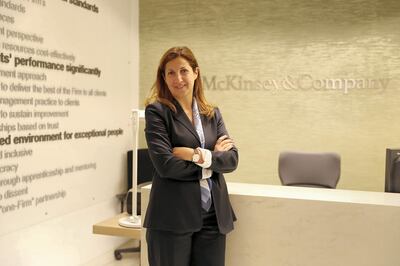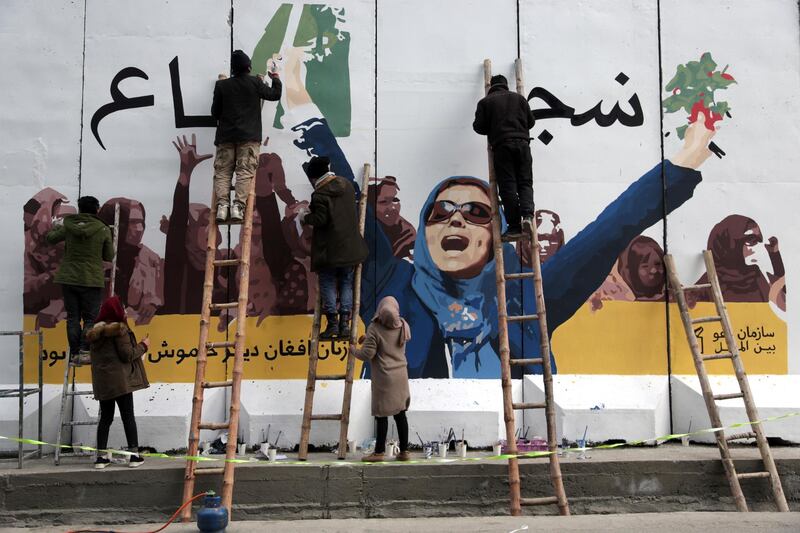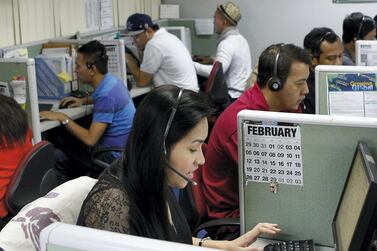Women can help “turbo charge” the economies of Middle East nations by filling the jobs of the future, according to the authors of a major new report.
Research led by McKinsey & Company, the global management consultancy firm, reveals that technological job opportunities for women in the region could more than double by the end of the decade, to 11 million, with development of artificial intelligence among the innovations responsible.
However, it also found that major shake-up of society, legal systems and schools are needed if women are to reach their potential, and drive up low rates of female participation in the workforce.
The report found that despite some progress being made in the UAE and other Arab nations, women still faced unequal laws, a lack of flexibility from some businesses and cultural barriers which held them back in the world of work.
Women are “not yet sufficiently integrated” into high-productivity sectors in the Middle East, nor are they equipped with the technological skills to take advantage of the new opportunities, said Rima Assi, a senior partner at McKinsey and an author of the report.
She called for a “paradigm shift” in the years to come to address the challenges, with the release of the report timed to coincide with International Women’s Day.
“Many countries and organisations have made significant progress by implementing policies and creating environments that lead to greater parity,” Ms Assi said. “There is real momentum, yet challenges remain.
“There are indeed deeply rooted societal and mindset shifts required to unlock the opportunity of gender parity. This unlock is a critical one - and does have significant second and third order effects for the stability not only of the region, but of the global economy.”
The report looked at the UAE, Saudi Arabia, Jordan, Kuwait, Lebanon, Oman, and Egypt, collectively home to almost 80 million women. Despite high female education levels, just under a quarter in the countries participated in the workforce – a figure around half of the global average.
While in the UAE gender inequality in areas of education and digital exclusion were classed as low, there was an “extremely high” gender gap in relation to professional and technical jobs and legal protections, the report found. There were five men for every woman in professional and technical jobs in the country – the highest disparity of all nations examined.

“Legal protection seems to be stagnant across all GCC countries, with clear gaps in legislative frameworks,” the report states. “A supportive legislative and regulatory environment is vital for helping women manage assets, open a bank account, enter certain professions, or start a business.”
Among the recommendations are for new measures to be introduced to encourage girls in science, technology, engineering and science subjects in school.
Although a “reverse gender gap” has emerged at universities with more women than men enrolled, a disproportionate number of females tend to study subjects in areas such as arts and education, potentially leaving them without the skills to benefit from new technologies.
It also calls for legislative changes across the region to ensure that women are paid equally, to prevent discrimination from banks based on gender, reform to parental leave and better provision of child care.
Employers should consider setting targets for recruiting more women and adopt more flexible working policies, the report said. Women should also “empower themselves” through “grit and resilience”, the authors claimed.
“Focusing on internal factors that are within their control contributes towards creating gender parity,” they wrote. “This involved having the confidence and self-value to speak up, and women owning their space and their voice”.
A Dubai-based chief executive, who was quoted anonymously in the report, said: “In previous studies, we found cultural barriers, organisational policies barriers, and self-imposed barriers.
“In many cases, women defeat themselves and give up too soon. All three types need to be tackled if we want more women to become corporate leaders.”






